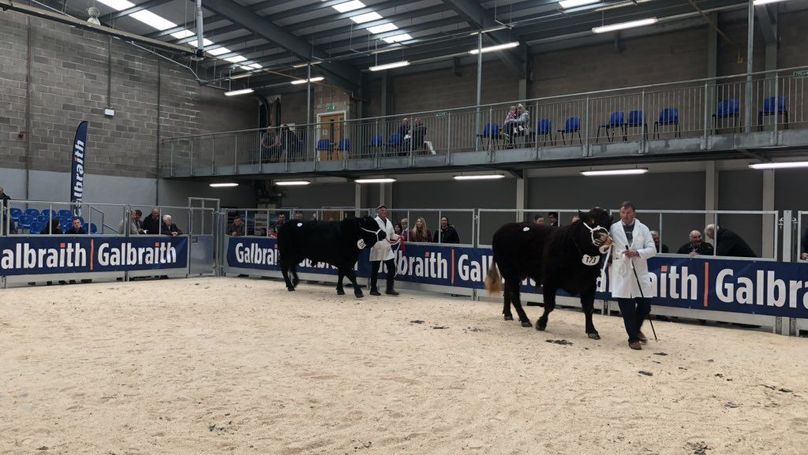2020 witnessed the cancellation of the vast majority of shows and events throughout the country, including the Royal Highland Show in Ingliston, Edinburgh in June. It is the pinnacle of achievement and a well-deserved day out for many farming families as well as associated businesses such as Galbraith. We have attended the Royal Highland Show with a trade stand for a number of years now and it forms a huge part of our connection to rural businesses and is enjoyed by everyone within the firm, from graduate surveyors up to partners.
It is looking increasingly likely that most shows and events in 2021 will unfortunately follow suit. Anybody on the show circuit knows that breeding an animal fit to take an accolade at a show can be a once in a lifetime occurrence and it’s sad to think of ‘it could have been my year’ scenarios. I am sure many people had the ‘best I’ve ever bred’ tucked away at home and meant to be destined for the show ring!
The day to day commercial trading of livestock through markets is hugely important to maintaining values and keeping the food supply chain going. Thankfully the auction markets up and down the country have taken the problems with Covid extremely seriously and have adopted very strict rules and in most instances only allowing potential purchasers to attend the sales with sellers having to say goodbye to their stock at the loading banks or farm gates.
The abattoir and food processing sector has seen instances of Covid outbreaks not only domestically but across the world with this causing subsequent problems in food supply further down the line with short term shortages in certain sectors and conversely a backlog in the supply of livestock and fruit & veg produce on the other side.
If anyone was ever in doubt as to the importance of the auction mart trading system then they should recall back to 2001 when foot & mouth disease devastated the UK farming livestock sector. It broke out at Longtown Mart on the Scottish/English border in March of that year and livestock sales by public auction never took place until the end of the year. Finished prime stock was sold direct from farm to abattoir and with no pricing mechanism available through the auction system the abattoirs took every opportunity of lowering prices where they could and this had a knock-on effect on an already crippled industry.
Large gatherings such as Kelso Ram Sales were re-organised with the various auction companies hosting their allocated "rings" normally held at Kelso Show Field to their own premises. Virtual sales have been popular and online bidding is becoming more commonplace with many breed societies conducting sales online.
Galbraith has sponsored the Stirling Bull Sales for a number of years and this is an incredible showcase for the beef sector but sadly this year the bulls will be simply paraded with no rosettes being handed out. Hopefully there will still be plenty of buyers in attendance making sure the commercial end is maintained and bulls can find a new home at a price to suit both purchaser and seller.
No-one knows what the outcome of this devastating virus will be but one thing is for sure, farming needs shows to take place not only for the commercial aspects but just as importantly for the social benefits to the rural community which can be a lonely and detached place to work at the best of times.
We offer all farming businesses our best wishes and look forward to seeing you when the agri show season gets fully back up and running.


